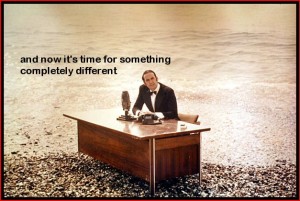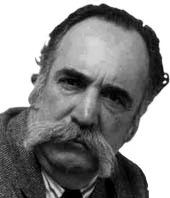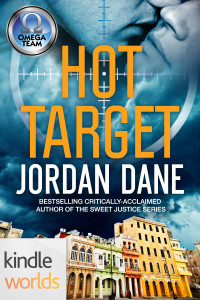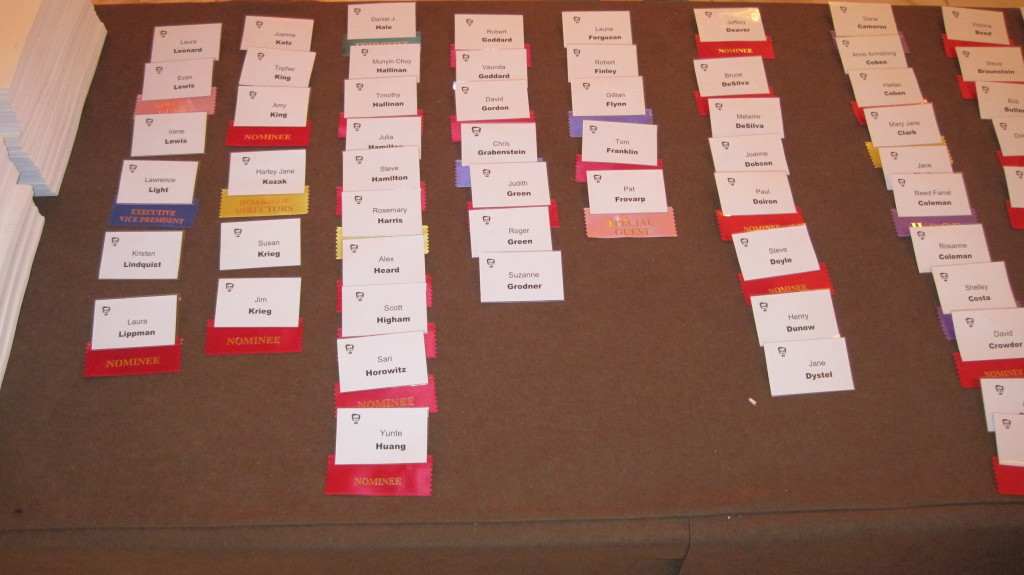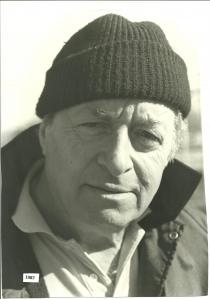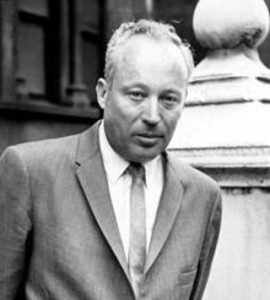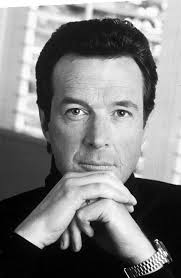Part 1 of 2 (because this ended being a lengthy analysis; when I post Part 2 on April 4th, I will include a link to this Part 1 post for your catch-up/review).
Writing a novel is complex work. On this point the most successful among us and the most consistently frustrated among us will agree.
No other artful avocation I can think of is complicated by so many processes, theories and debated conventional wisdom as the seemingly simple intention to write a novel.
It’s just a story, how hard can it be? Professionals make it look so easy… isn’t it?
And while it’s true there are many viable ways to go about writing a novel, some more efficient than others that in the end prove to be just as effective, there are also infinite ways to screw it up.
Some of those pitfalls have less to do with how and what you write than with what one believes to be true about writing and the writing conversation in which we are all taking part.
I recently read that about 80 million folks cling to the intention of writing a novel.
Which means, to whatever extent that is even close to being true, there are 80 million prospective authors who intend to turn pro. In a world loaded with ways to occupy our spare hours – golf, bowling, macramé, even reading – nobody seems to be doing this as a hobby.
They intend to get paid. To become famous. To contribute to the collective library of human experience, and thus, live forever.
And yet, very sadly so, a significant percentage of those writers are buying into myths that will hold them back or sabotage their writing dream entirely. Some will fail because they’ve never heard otherwise, they’ve never had their limiting beliefs challenged.
It seems that 80 million of us believe we have the raw chops to write a novel at the highest level of the game, and to command a fee for it. This alone is likely to be a limiting belief. It is a myth in its own right, because it’s just not gonna happen for all 80 million of us.
Not even close.
Not because the truth isn’t available to all.
It actually is available to us all.
But rather, because the truth will be lost on many. Sometimes because of the very writing conversation to which they look for guidance. Contradiction, confusion and outright toxic untruth is out there. Everywhere, in magazines and books and at writing conferences and in keynote addresses, even from the mouths of those who would have you believe they know from whereof they speak.
Confusing the matter is the fact that shreds of truth are marbled within all the noise, just as there are voices of wisdom wandering among the crowd. Like trimming the fat from a delicious rib eye of writing energy – because really, it’s just so fun and energizing to listen to or read about what others more famous than ourselves are saying about writing – we are left to digest as best we can before our arteries clog from the sheer preponderance of partial truths.
We all have access to the truth in all its varied forms, but we are challenged to weed them out from the abundant noise. Not just the truth – because indeed, there are many that apply – but to find our own highest and best truth.
Where process is concerned, what is true for one may not be true for another.
But where craft is concerned, the truth about what works in a novel, and by omission or weakness what doesn’t, stands unchallenged and largely non-negotiable. If you doubt this, try writing a novel without dramatic tension or stakes, for example. Those are only two of about a dozen incontrovertible essentials.
There are voices calling to you in this regard, and as you read and listen and learn you must seek to separate veracity from hubris, knowledge from ignorance, the overly-simplistic from the perfectly complex.
It is precisely because there are so many pathways to success that you must discount anything that smacks of “this is how I do it” from the mouths of the famous. Because you may not yet know what they know.
Notice how the so-called gurus – Robert McKee, Donald Maass, Randy Ingermanson, James Scott Bell, and others writing here and elsewhere, including myself – rarely if ever say “this is how how I do it, so you should do it this way, too.” Some gurus apply different vocabulary and modeling to their versions of the truth, but when you look closely you’ll see that we’re all basically singing the same tune.
The one you’ll be singing, too, once you get it right.
Rather, we write about what we believe to be true about process without suggesting what your process should be, provided it leads you to certain outcomes, and then, what is unmistakably true about stories that work regardless of that process.
The former is fluid and negotiable. The latter is as firm and solid as the gravity holding you in your chair.
And thus the beautiful, harrowing, worthwhile dance with our fiction plays on.
If you are reading this and thinking, “well, I hear you, this is hard, but nonetheless I’m going to be one of the few who actually make it,” there is good news and intimidating news.
The good news is that this is precisely the attitude you need, and if you go about it properly – both in terms of process and reaching the qualitative bar required of making it – you must might.
The intimidating news — it’s more good news, actually — is that you might just have to give up, to completely walk away from, some of the things you believe about how it all happens, and what it looks like when it does. Some of which might have been why you came to the writing party in the first place.
A few of these might not ring fully true for you… yet. But the longer you are at this, the more clarity you’ll find in the following list of myths about writing novels.
Myth #1: “Just write.”
These two words, when strung together in this context, can be among the most misleading and toxic pieces of writing advice you will ever hear. Especially if they aren’t paired with some notion of what and how to just write.
There awaits a place along the writing road where this becomes solid advice. But until you just write in context to a robust awareness of certain principles – requisite storytelling competencies and story forces, all of which will serve you when done well and sink you if omitted or fumbled – you will for the most part be treading water if you simply just write.
For many writers – just for grins, let’s say that this is the case for 79 out of those 80 million aspirants – suggesting that they “just write” is like telling a prospective doctor who has not yet gone to medical school to “just cut.”
The outcome of that can be fatal.
Myth #2: Listen closely and you’ll hear what you need to know.
Maybe. That’s far from a certainty. The better bet is to hear what you suspect may be truth and then seek to prove or disprove it by looking for it within the stories you read.
We have been brought up to listen to those who have gone before us and succeeded mightily. We read about them in magazines, we take notes as they deliver their acquired wisdom in a keynote address. When they tell us that their characters are speaking to them – sometimes as if they want this to be taken literally – we believe.
Because we so want what they are saying to be completely true.
And so often it isn’t.
Here’s the dangerous part, the siren melody of their message: what they say won’t be completely wrong. Because it will be real and right – spot on perfectly accurate – for them. And yet it may actually be the worst thing you can do relative to your own writing process and your understanding of what makes a novel work.
Famous Writer A says she has no clue about her story when she begins, including the ending. She just writes and writes, year after year, draft after draft, until the story coalesces and her characters take on a life of their own. It’s as if she has very little to do with it – which in the moment sounds so humble and heroic – she’s only driving the bus, which is on autopilot to a destination that always surprises her.
Famous Writer B says he won’t start writing a project until the premise haunts his every waking moment, until he knows every last twist and turn, including the ending. Especially the ending. Then he writes a 50-page single-spaced outline and lets it stew for a few weeks while trusted advisers weigh in. Only then will he embark upon an actual first draft, and when he finishes that draft it is pretty close, only a tweak and a polish away from what he submits.
They are both famous bestselling authors. So who is right?
In that moment, the one that scares you the least, and inspires you the most, the one that aligns with what you already think you know and have chosen to believe is true for whatever reasons apply… that’s the writer you believe.
None of those are the best criteria for your choice. Better criteria awaits within the vast oeuvre of craft, solidified by your own reading and witnessing within novels that inspire you. Because reading in context to what you know about craft – using the experience to test and solidify your knowledge – is the most empowering form of learning available.
Learn the craft, witness the craft, practice the craft. That’s the ticket, and it applies to any and all processes, pantser and planner and everyone in between.
Myth #3: There are no rules.
Writers hate rules. Rules are for traffic court and raising children. Rules advocate a crowd mentality, they exist for sheep to keep the sheep alive, while writing is a creative, individual pursuit that seeks to break new ground.
Until, that is, you sign up to sell your fiction as a professional. The moment your raise your hand for that, certain expectations that smell a lot like rules begin to define your path to success. The more you understand the more you’ll realize what you though were rules are actually principles, and they are there to empower you, not hold you back.
There are lines on this playing field, and if you step over them you put your game at risk.
The proposition that “there are no rules” is a misinformed hope, while the fundamental presence of a suite of powerful writing principles is an incontrovertible truth.
Empowerment comes from understanding the difference. And, once you do, to understand that to break form with the principles is advised only for those who know precisely what they are doing.
Versus, say, someone who violates a principle because they don’t recognize or understand it for what it is. Or does so in the name of art, expectations and lines be damned.
Don’t be that writer. It can cost you years of spinning your wheels on the writing road if you are.
Myth #4: Story Trumps Structure
All this means, when taken literally, is that structure is useless without a worthy story to tell. Like using a CAD program to create the blueprint for how to light a candle. It’s a book title, not a truth or even a principle.
Good stories always have certain things in common. Like a compelling premise. A hero with something to do – the pursuit of a goal, the seeking of a solution to a problem, the avoidance of something that threatens. A plot, in other words. And where this is a plot there is structure. Always. There are stakes involved. Something stands in the way of what the hero wants or needs or seeks, threatening or blocking or otherwise causing trouble.
It isn’t a story until something goes wrong. And it won’t work if the structure is off.
That’s called dramatic tension, stemming from conflict. This is the life-blood of every genre, every time. Structure is like math – it’s not something we make up, it’s something that adds up once we understand the principles involved.
Which leads us to…
Myth #5: It’s all about your characters.
Authors love to talk about their characters. Backstory and inner landscape and how an abusive father messed up their lives. But until the writer tosses in what goes wrong, creating an unfolding path of response by the hero followed by proactive intention, all in the presence of an antagonistic force or villain, motivated by stakes… they aren’t telling you the whole story.
Plot exists to give your characters something to do.
Characters exist to engage with the plot.
It is through their decisions and actions along that path that character is best revealed. saying storytelling is all about the characters is no different than saying it is all about the plot. Rather, the sum of the two exceed the parts standing alone.
*****
Part 2 of this article will post here on April 4th.

